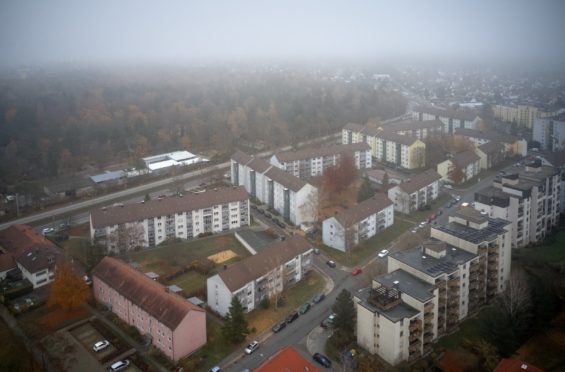Nuremberg (Siemens-Schuckertwerke) Subcamp
October 18, 1944 – March 6, 1945
![]()
Aerial view of the former camp grounds in Nuremberg, 2018 (Flossenbürg Concentration Camp Memorial / Photo: Rainer Viertlböck)
-
Prisoners
550 Hungarian-Jewish women from Auschwitz
-
Forced labor and quarters
The women were forced to perform menial tasks at the Siemens-Schuckertwerke (SSW), for example de-rusting metal parts. Most of them worked in an enclosed barracks compound in Katzwanger Straße. Some had to go by foot or tram to work at the SSW’s transformer and meter factory.
-
200 women were too ill or weak to work. After the camp was destroyed in an air raid in February 1945, the women were moved to the school building in Zeltnerstraße near the main railway station and forced to clear debris.
-
Guards
Detail leader Theodor St. Mont and ten SS men, along with female overseers. After the war, the Nuremberg factory director Knott and the manager Grießhammer denied any responsibility for the conditions in Nuremberg.
-
Death toll
Three instances of death are documented.
-
Disbanding of the camp / end of the war
In the beginning of March, 144 women were transported to the subcamp Mehltheuer, in total 403 to subcamp Holleischen.
-
Commemoration
Since 2019, two panels on the Julius-Loßmann-Straße describe the subcamp.
-
